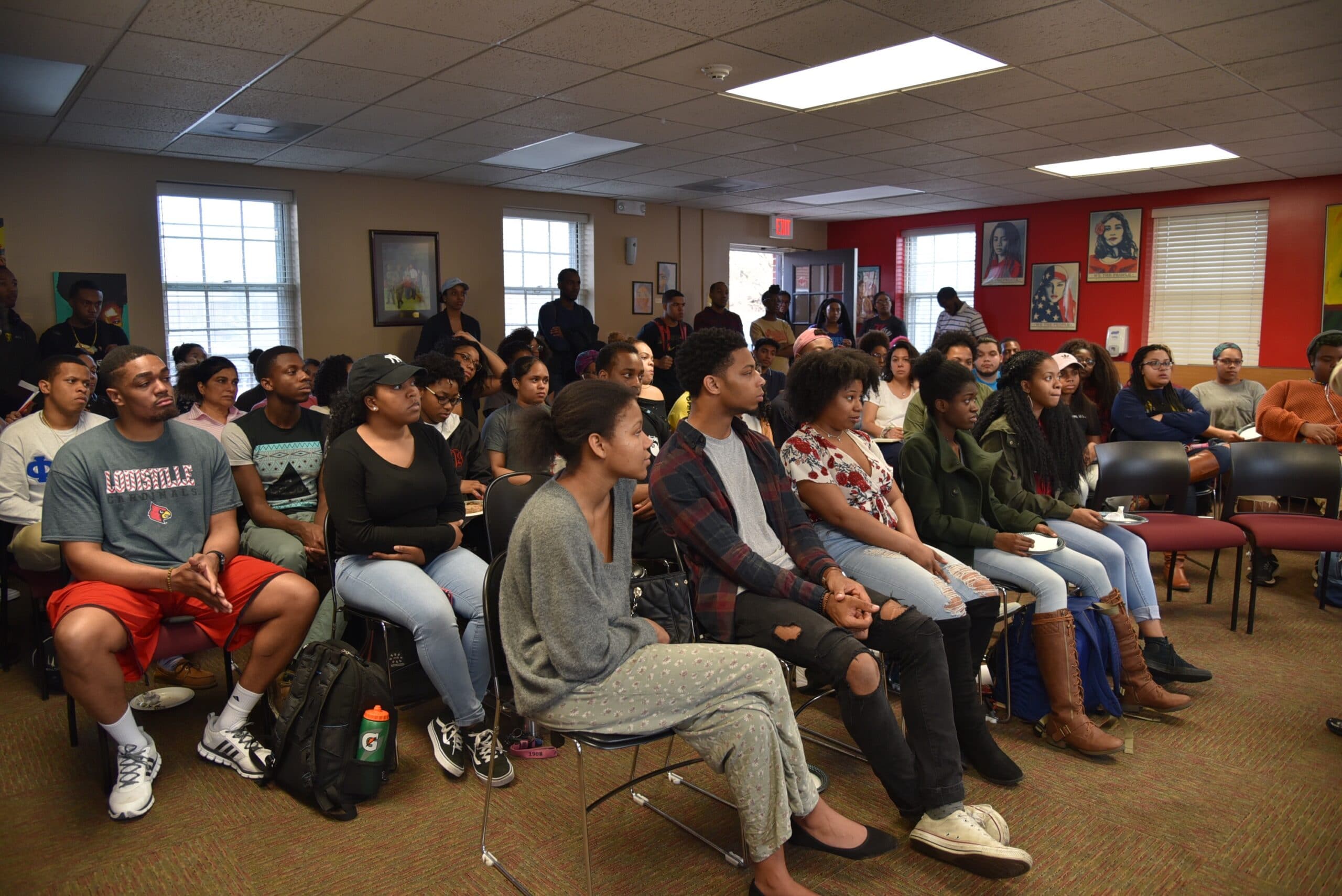By Bailey Campagna —
Students organized a meeting in the Cultural Center Feb. 19 to discuss the building’s potential demolition and plans for relocating its programs. They expressed dissatisfaction with temporary relocation plans and distrust of administrators who will decide the fate of the center.
Some students went to the Feb. 22 budget forums and spoke out about the issue.
“We have a lot more power than we think we do here,” said Martin Luther King Scholar Bayley Amburgey. “Don’t ask for anything, demand it.”
The meeting was attended by more than 60 students and faculty members, including SGA President Vishnu Tirumala, Vice Provost for Diversity and International Affairs Mordean Taylor-Archer and Pan-African Studies Chair Ricky Jones.
Interim President Greg Postel said in an SGA Senate meeting Feb. 13 the building should be condemned, and engineers have recommended its demolition.
Students and staff have had concerns about the Cultural Center for years. At the meeting, many described heat and electricity outages experienced in the building.
“While nothing is imminent at this time, plans are being developed to raze the building,” university spokesperson John Karman said.
University Provost Dale Billingsly arrived after the meeting and spoke to a small group of students who stuck around. He said even if the center was renovated, and not replaced, it would take a year and $2.5 million the university doesn’t have.
The meeting’s speakers echoed the theme the Cultural Center should not be demolished until a clear plan and timeline for its replacement is established.
Karman said after the building is demolished, plans call for temporary offices to be established in Strickler Hall and a new Cultural Center built on the site of the old one, but no timeframe has been set.
Tirumala said the SGA has $16,000 set aside to help fund a new “identity center,” which could house the Cultural Center’s programs, as well as women’s and LGBTQ groups.
Jones said an identity center should be in a new building, because putting minority groups together in Strickler Hall would not be to their benefit.
“It’s warehousing the undesirables and squeezing them into one space, instead of giving them a nice space,” Jones said.
Tirumala said REACH, which operates out of Strickler Hall, will move to the Belknap Academic Building by Fall 2018. He said if the Cultural Center doesn’t take REACH’s space, it might be reserved for another purpose.
However, students and faculty were concerned if administrators approve the temporary relocation plans, the Cultural Center might never leave Strickler.
“There’s been no commitment from the administration that it’s temporary,” Jones said.
Jones said he wants a specific date he can look forward to for the completion of a new center.
“I don’t trust them to make a decision on the fly, you know? And I don’t think anyone here should trust them to make a decision on the fly either,” Jones said.
In 2005 the university developed plans to build a new Cultural Center. At the meeting, students questioned why those plans weren’t fulfilled.
“There has not been a lot of student action on this movement, so the administration hasn’t seen this as a priority,” Tirumala said.
Brianna Worrell, who helped organize the meeting, said while Louisville is supposed to be the most diverse place in Kentucky, it doesn’t appear that way if no one stands up for minority students.
Photo by Arry Schofield / The Louisville Cardinal




